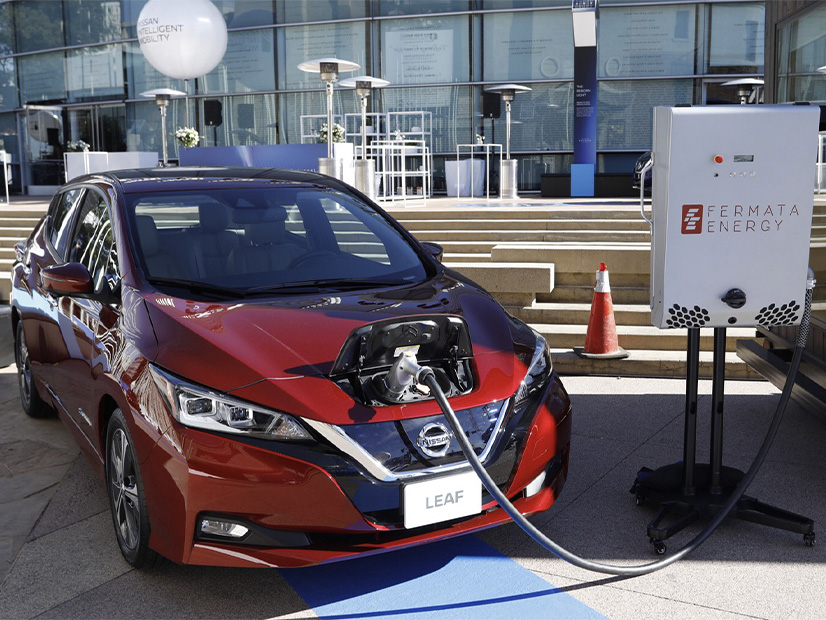A bill that would require all new electric vehicles to have bidirectional charging capabilities for vehicle-to-grid (V2G) or vehicle-to-home uses by 2027 cleared the California State Senate Energy, Utilities and Communications Committee on Tuesday despite opposition from large utilities and automakers.
Senate Bill 233 “will ensure that new EVs are equipped with bidirectional charging so that EV batteries have the ability to power homes or other facilities when electricity demand is at its peak and prices are high,” the bill’s author, Sen. Nancy Skinner, wrote in a statement on the need for the bill. “With bidirectional charging, EVs also have the potential to help power the grid.”
California has a requirement that 100% of new passenger vehicles sold in-state must be zero-emission by 2035, with interim goals of 35% by 2026 and 68% by 2030.
The California Electric Transportation Coalition (CalETC) — a group whose members include Pacific Gas and Electric, Southern California Edison and the Los Angeles Department of Water and Power — said Skinner’s bill could hinder EV adoption and undermine the state’s efforts.
“The ramifications of setting a mandatory deadline requiring EVs and chargers to be bidirectional-capable will be detrimental to the EV market and risks increasing costs at a time when zero-emission technology needs to be more accessible to consumers, especially equity communities,” the group wrote in a letter opposing the measure.
“The V2G and bidirectional charging technology market is still nascent, and it is unclear which use cases justify the costs,” it said. “Further, the lion’s share of benefits to grid stability and resiliency are expected to be realized with managed charging through V1G [unidirectional smart charging] technology in the near to medium term and at much lower cost.”
At Tuesday’s hearing, Skinner noted that all Nissan Leafs have been bidirectional since 2013 and remain among the most affordable on the market. All Tesla models will be bidirectional starting with the next model year, she said.
“We’re already moving in this direction, but we need all of our vehicle manufacturers to move their EVs to bidirectional, so that we have that capability,” she said. Doing so could save ratepayers money and promote grid reliability during times of high demand, she said.
“With the expectation that 8 million EVs will be on the road by 2030, if less than 10% of those EVs were utilized in this way, it would have more gigawatt capacity than Diablo Canyon has today,” she said.
Diablo Canyon, the state’s last operating nuclear power plant and its single largest power source, has a 2.2-GW generating capacity.
Supporters of the bill include the Sierra Club, the Union of Concerned Scientists and community choice aggregator Marin Clean Energy.
In their analysis of the bill, committee staff suggested lawmakers might want to amend the bill to remove its mandates and instead direct the California Energy Commission and Air Resources Board to study the availability of bidirectional EVs and chargers, as well as the costs and benefits of bidirectional EV charging and discharging to the grid.
The Alliance for Automotive Innovation — a group whose members include Ford, General Motors and Toyota — said it would oppose the bill unless the mandates were removed and urged the committee to follow its staff’s suggestions.
Skinner accepted an amendment to remove a mandate that EV charging equipment be bidirectional by 2027 but did not remove the vehicle mandate.
Curt Augustine, head of state affairs for the auto alliance, said he was “perplexed” by the move.
“She is exempting all the utilities, the service providers [and] the charging units but requiring a mandate on the automakers,” he said.
Some committee members expressed concerns with the measure, including its potential effects on EV affordability for low-income residents, but they passed it 12-1. It goes next to the Senate Transportation Committee.



